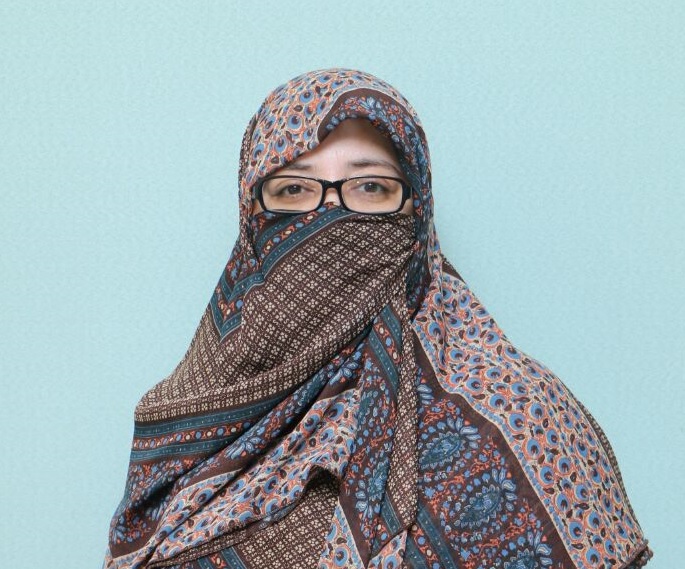
Journal Papers:
| Sr # | Description |
|---|---|
| 1 | Farooq, F., Mahmood, A., Iqbal, J., (2022). Ensuring Students’ Academic Achievements: A Case study examining headteachers’ Leadership Styles. Pakistan Journal of Social Research, 4(4), 236-246, ISSN 2710-3129 (P) 2710-3137 (O), www.pjsr.com.pk [HRJS (HEC)-Y Category] |
| 2 | Pirzada, G., Farooq, F., Mahmood, A. (2022). Impact of Technostress on Vocational Education Students during online learning in Pakistan. Pakistan Journal of Social Research, 4(4), 55-64, ISSN 2710-3129 (P) 2710-3137 (O), www.pjsr.com.pk [HRJS (HEC)-Y Category] |
| 3 | Pirzada, G., Muhammad, Y., Mahmood, A. (2022). Assessment Challenges Faced by Technical Vocational Education (TVET) Stakeholders in Pakistan: Stakeholders’ Perspectives. Research Journal of Social Sciences & Economics Review, 3(4), 17-26, ISSN 2707-9023 (online), ISSN 2707-9015 (Print) ISSN 2707-9015 (ISSN-L, doi: https://doi.org/10.36902/rjsser-vol3-iss4-2022(17-26) [HRJS (HEC)-Y Category] |
| 4 | Pirzada, G., Muhammad, Y., Mahmood, A. (2022). Working Girls' Education and Life Goals: A Multiple Case Study of Mothers’ Perspectives. Global Social Sciences Review, VII(I), 94–102, doi: 10.31703/gsr.2022(VII-I) [HRJS (HEC)-Y Category] |
| 5 | Hani, U., Muhammad, Y., Mahmood, A. (2022). Managing Group Work in the Social Studies Classrooms in Elite Schools: An Analysis of Teacher's Beliefs and Practices. Global Educational Studies Review ,VII(II),314 – 324, doi: 10.31703/gesr.2022(VII-II).30 [HRJS (HEC)-Y Category] |
| 6 | Naz, M., Muhammad, Y., Mahmood, A. (2022). Stress and Burnout: An Interpretive Phenomenological Analysis of Elite School Teachers’ Beliefs and Experiences. Global Sociological Review, VII (II),120-131. doi: 10.31703/gsr.2022(VII-II).13 [HRJS (HEC)-Y Category] |
| 7 | Nadar, M., Thakur, I., Mahmood, A., Fatima, I. (2022). To Investigate English Vocabulary Learning Strategies Used By Students At The Secondary Level In Pakistan. Webology, 19(3), 2502-2510. [HRJS (HEC)-X Category] |
| 8 | Mahmood, A., Sarwat, Q., & Gordon, C. (2022). A Systematic Review on Artificial Intelligence in Education (AIED) with a focus on Ethics and Ethical Constraints. Pakistan Journal of Multidisciplinary Research, 3(1), 79-92. [HRJS (HEC)-Y Category] |
| 9 | Pirzada, G., Muhammad, Y., Mahmood, A. (2022). Influence of Vocational Art and Design Education in Gilgit-Baltistan: The Graduates’ Perceptions. Asian Social Studies and Applied Research (ASSAR) Volume 3 Issue 2, ISSN (E): 2709-9229 [HRJS (HEC)-Y Category] |
| 10 | Atta, A., Muhammad, Y., Mahmood, A. (2022). Prospective Teachers’ Understanding of Good Citizenship: Evidence from Two Case Studies. International Review of Basic and Applied Sciences (IRBAS) Volume 10 Issue 2, 206-214. ISSN (Online): 2308-7056 [HRJS (HEC)-Y Category] |
| 11 | Sterrett, W.L., Azam, R.I., Moallem, M., Boersma, J., Bashir, A., Ricanek, K., Saeed, M.A., Butt, I.H., Mahmood, A., Sukhera, S.A., & Gordon, C.R. (2020). Sharing a powerful IDEA: Learning organizations collaborating to innovate and design engaging applications in STEM education, Development and Learning in Organizations, 34(2). https://doi.org/10.1108/DLO-06-2019-0137 [HRJS (HEC)-Y Category] |
| 12 | Aisha Mahmood, Zulhasni Abdul Rahim, Muhammad Mansoor and Mariam Altaf Tarar “Redesigning the way future engineers learn to solve inventive problems” in The TRIZ Journal (online) , June Issue, 2016 [https://triz-journal.com/triz-journals-june-issue/] |
| 13 | Yusof, Y. M., Othman, M. F. Bin, & Mahmood, A. (2014). Making Students’ Thinking Explicit: Learning What They Know about Functions. In International Conference on Teaching and Learning in Computing and Engineering (pp. 256–261). Kuching, Malaysia: IEEE Computer Society Press. doi:10.1109/LaTiCE.2014.56 [Scopus Indexed] |
| 14 | Mahmood, A., Othman, M. F. Bin, & Yusof, Y. M. (2013). Activity Theory Model to Cultivate Higher Order Mathematical Thinking. In Research in Engineering Education Symposium (REES2013) 4-6 July, 2013, ISBN 978-967-0194-35-6 (pp. 263–275). Putrajaya, Malaysia. [Scopus Indexed] |
| 15 | Mahmood, A., Othman, M. F., & Yusof, Y. M. (2012). A Conceptual Framework for Mathematical Ability Analysis through the Lens of Cultural Neuroscience. Procedia - Social and Behavioral Sciences, 56(8 October), 175–182. [Science Direct Indexed] |
Disclaimer: Profiles are editable by employees who may share the data of publications, experience and education up to the extent they want to share. Also University of Education Lahore is not responsible for any display of data on personal profiles.